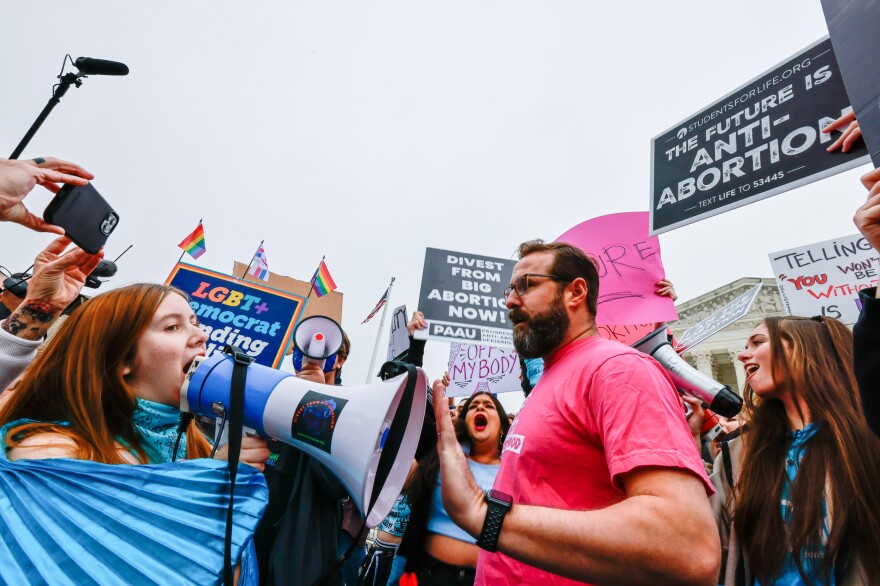The U.S. Supreme Court ruling overturning Roe v. Wade triggered abortion bans in 13 states across the country but in Maryland the right to an abortion has been state law for three decades, and that’s not likely to change.
Maryland is positioned to have more providers able to perform abortion services and might have an influx of people seeking care from other states with more restrictive laws.
In 1991,state lawmakers passed and then-Gov. William Donald Schaefer, a Democrat, signed a bill allowing abortions up to the point when a fetus can survive outside the womb.
Opponents petitioned the bill to appear as a referendum on the ballot, butvoters approved abortion rights by a 2-1 margin in 1992.
At the time, gubernatorial candidate Peter Franchot was representing part of Montgomery County in the House of Delegates and voted in favor of abortion rights.
Advocates suggest that Maryland could become a destination for abortion care.
"If other states lose access to abortion care, there's a concern that our volumes are going to go high, with people traveling from other states to to get health care here within this state,” said Karen Nelson, CEO and president of Planned Parenthood of Maryland on Thursday.
This year the Maryland General Assembly, which has a Democratic supermajority, passed a law expanding the types of clinicians authorized to perform abortions to include not just doctors but also nurse practitioners, nurse midwives and physician assistants.
The program is intended to increase the racial and ethnic diversity among health care professionals with abortion care training.
The state cannot disclose the identity of individuals participating in the training but requires organizations to have experience coordinating abortion programs and submit annual reports.
The law takes effect July 1, after lawmakers overrode Republican Gov. Larry Hogan’s veto in the spring. It requires the governor to allocate $3.5 million each year beginning in fiscal 2024 — which begins July 1, 2023 — to train health care professionals to administer reproductive services.
Democratic lawmakers worked out a separate budget deal to fund the training program beginning in July of this year, but Hoganhas said through a spokesman that he won’t release the money.
In general, minors are not able to obtain abortions without a parent’s or guardian’s permission, but medical providers can bypass guardians if a reasonable effort is made to get permission.
The new law also requires private health insurers, except those with a religious or legal exemption, to cover abortion without deductibles as health care, and it makes the state’s Medicaid health coverage of abortion care permanent.
The geographic distribution of abortion clinics is not equal, as 71% of counties across the state, mostly rural communities, do not have brick and mortar abortion clinics, according to an analysis by reproductive health nonprofit Guttmacher Institute. About one-third of Maryland women live in those counties, according to the nonprofit.






